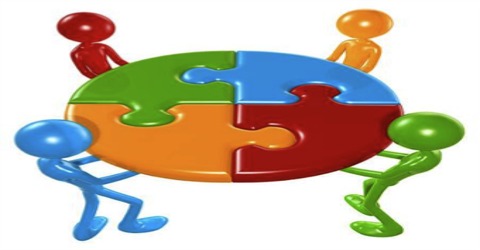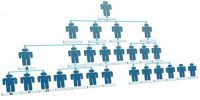Roles of Members in Group
Every member of a group plays a certain role within that group. Some roles relate to the task aspect of the group, while others promote social interaction. A third set of roles is self-centered and can be destructive for the group. The followings are the different roles played by the group members:-
Task oriented roles: Groups are formed to perform a set of activities and to accomplish some objectives. Some members of the group may engage in unethical and destructive activities which hamper group performance. Researchers Benne and Sheats have identified the following task roles of the members of a group:
- Initiator-contributor role: Generates new ideas.
- Information-seeker’s role: Asks for information about the task.
- Opinion-seeker’s role: Asks for the input from the group about its values.
- Information-giver’s role: Offers facts or generalization to the group.
- Opinion-giver’s role: States his or her beliefs about a group issue.
- Elaborator role: Explains ideas within the group, offers examples to clarify ideas.
- Coordinator role: Shows the relationships between ideas.
- Orienter’s role: Shifts the direction of the group’s discussion.
- Evaluator-critic’s role: Measures group’s actions against some objective standard.
- Recorder’s role: Keep a record of group actions.
Social roles: Groups also have members who play certain social roles. The followings are the important social roles of the members of a group:
- Encourager’s role: Praises the ideas of others.
- Harmonizer’s role: Mediates differences between group members.
- Compromiser’s role: Moves group to another position that is favored by all group members.
- Gatekeeper/expediter’s role: Keeps communication channels open.
- Standard Setter’s role: Suggests standards or criteria for the group to achieve.
- Group observer’s role: Keeps records of group activities and uses this information to offer feedback to the group.
- Follower’s role: Goes along with the group and accepts the group’s ideas.
Individualistic roles: These roles put the group member above the group and are destructive to the group. The followings are the main individualistic role:
- Aggressor’s role: Attacks other group members, deflates the status of others, and other aggressive behavior.
- Blocker’s role: Resists movement by the group.
- Recognition seeker’s role: Calls attention to himself or herself.
- Self-confessor’s role: Seeks to disclose non-group related feelings or opinions.
- Dominator’s role: Asserts control over the group by manipulating the other group members.
- Help-seeker’s role: Tries to gain the sympathy of the group.
- Special interest pleader’s role: uses stereotypes to assert his or her own prejudices.















